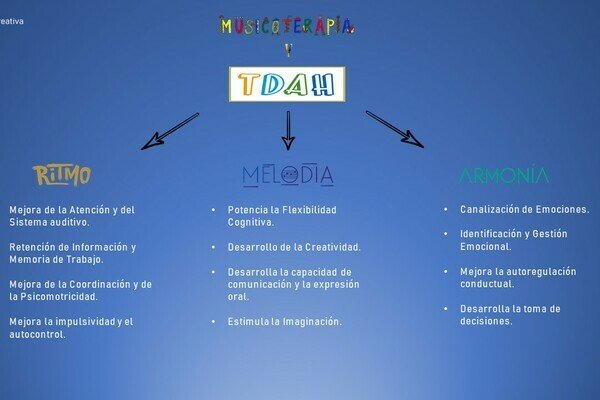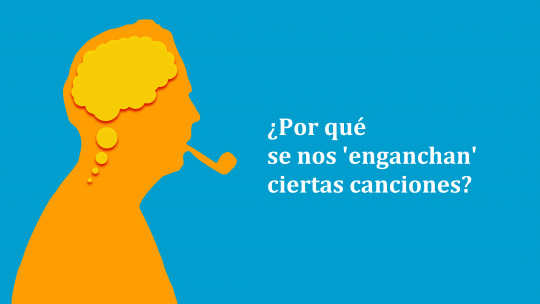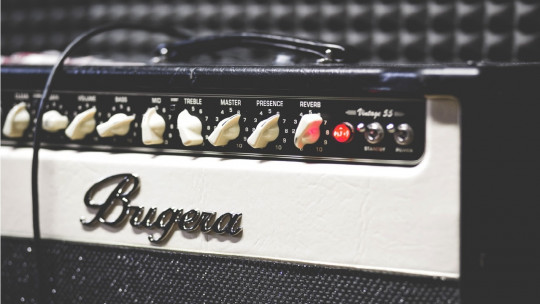Do you know what music therapy consists of? Discover the applications of music therapy and all the benefits of music therapy on an emotional and psychological level. Music gives life!

The German philosopher, musician and poet Friedrich Nietzsche was quite clear: Music is the art that completes our lives and without it a large part of our essence would remain dormant. There is no doubt that music is part of our existence since it has been present since the beginning of time. That is why today the music therapy or music therapy It is one of the most beneficial treatments for our mental well-being.
“Without music, life would be a mistake”
Friedrich Nietzsche
What is music therapy?
The music therapy It is used in different contexts with the aim of promoting psychological balance and being a significant companion in the emotional experience. In this way, music therapy or music therapy consists of using all the benefits of music to achieve complete emotional well-being.
The areas of application where we find much of the work of the music therapy They are those that intervene in developmental disorders, physical disabilities, cerebral palsy, sensory disabilities and dementia. However, in recent years the use of conventional therapeutic music has been increasing, obtaining emotional benefits in depressive and anxiety disorders.
Objectives of music therapy
The setting of the objectives depends on the users and the group of pathologies to be treated. However, the areas worked on for different problems tend to be common. These areas are: physical level, cognitive level, social level and emotional level. In this reading we will focus on the last one.
When working emotions through music, what is intended to be achieved is, on the one hand, for the person to make contact with their emotions and, on the other, for the person to be able to express those emotions. Therefore, the achievement of both objectives is closely related and its purpose is none other than to get the patient to express those repressed emotions that are causing pain, blockages and general discomfort.
-
Emotional support
We usually connect with certain kind of music depending on our emotional state. Being able to enjoy the harmony that comes with combining our internal state with an external element. Sometimes we choose the style of music based on how we feel.
-
Facilitator of emotional expression
When we feel emotionally blocked, music It can be used as a catalyst for internal events that we are repressing.
-
Internal balance
Since we can also modify our internal state depending on the environmental stimuli that we choose around us. As with the use of Relaxing music in moments of stress or tension evoked by life situations.
-
Evoking memories and stimulating memory
The learning of musical compositions It is an interesting exercise for intellectual stimulation. The emergence of new associations between different content encourages cognitive development. By functioning as an evocator of memories, it also allows a greater connection with our history.
-
Social comunication
The intonation of the language influences the information that the words offer, and can modify the semantics of the message. On the other hand, sharing musical experiences favors human communication, influencing the bond beyond the verbal level. It allows social cohesion and improves trust in others.
-
Creative impulse
The music It is an enhancer of creative action, so enriching for human beings. Emotions allow sound to be related to meanings, allowing the association of internal events with new concepts.

Benefits of music therapy
As can be seen, the benefits of music therapy that are obtained on an emotional level are of great help in the therapeutic process, since a large part of the psychological conflicts are dragged down by previous unresolved emotional conflicts. So much so that music therapy can benefit psychologically in all these aspects.
1. Improves cognitive performance
One of the benefits of music It is intrinsically related to improving certain cognitive aspects of the brain. According to various studies, background music can help people concentrate better on an activity. In addition, playing an instrument can also be a good musical therapy for people who have a short attention span.
2. Reduce stress
Music therapy can reduce many of the effects and ravages of stress. Therefore, the music therapy can control the prejudices that go hand in hand with a too hectic lifestyle.
3. Control of compulsive eating
One of the benefits of music therapy The most surprising ones are related to the control of anxiety in compulsive eating. In this way, it is a very useful tool to be able to lose weight. For this reason, music therapy is also indicated to maintain the diet.
4. Improves memory
The positive emotions that are related to a musical style that we like can help us remember information better. That is why there are different studies that highlight that music therapy can promote better memory.
5. Helps control pain
The music therapy or music therapy It has many advantages to alleviate pain. Different research on fibromyalgia has suggested that those who listen to more music experience a significant reduction in pain. Other studies have extrapolated these effects to other negative feelings.
6. Helps you sleep better
For those who experience insomnia, music therapy can be a good way to try to promote sleep. Furthermore, certain studies on the benefits of music therapy They also show that the use of music improves sleep quality in those who listen to it more.

7. More motivation
Motivation can be difficult to achieve in some tasks in our daily lives. Therefore, music therapy can be a useful tool to achieve more motivation in those activities that we do not like. Besides, the music therapy It allows you to improve the performance of any task since it has a positive effect on emotions.
8. Improves mood
Happiness and music are very related. one of the clear benefits of music therapy or music therapy It is the enhancement of optimistic states and positive thoughts. So much so that music allows you to be more aware of your state as well as making you enjoy and pay more attention to the present.
9. Reduces symptoms of depression
Therapy with music and with the help of a music therapist It can reduce many of the damages caused by depression and anxiety. On the other hand, it has been shown that its use is not only very beneficial but is even capable of replacing drug treatments. In addition, music as therapy also has many positive effects to address other psychological illnesses.
10. Improves resilience
Resilience is one of the most useful skills to face our daily lives. Through music therapy many favorable results have been seen that indicate that music is capable of improving this capacity of human beings. Thanks to one music therapy People learn to tolerate their frustrations better and have much more motivation to achieve their goals in life.
“Music is for the soul what gymnastics is for the body”
Plato
The music therapy It has many benefits not only in the treatment of certain psychological pathologies, but in different areas of our lives. It is therefore essential to enjoy both the melodies and each of your favorite tunes whenever possible. Music makes us move to the rhythm of joy.








